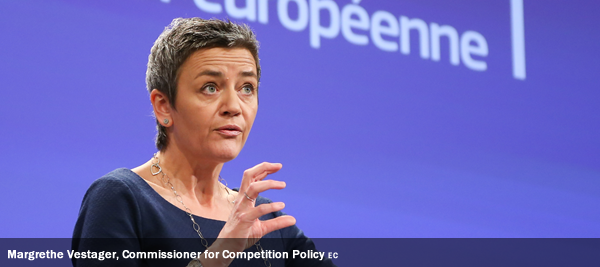European Commission Competition chief, Margrethe Vestager, has opened another State aid investigation into the deals that EU tax authorities offer to certain companies – most notably to multinational corporations – that may go against EU state aid rules. This investigation will look into a system of tax exemptions offered by the Belgian tax administration through so-called “excess-profit tax rulings.
Vestager said: “These are tax rulings that multinational groups can benefit from but are neither available to Belgian groups nor to stand-alone companies. They seem to allow a few multinationals groups to pay no taxes on large parts of their profits, without any valid justification under taxation principles. It also appears that the deals are only struck with companies that move substantial parts of their business to Belgium.”
“To be clear, this is just our preliminary view. However, if our in-depth investigation confirms it, we would be looking at a scheme benefitting only a selected group of multinational companies.”
“Belgium claims that the system is justified under the arm’s length principle and the OECD rules aimed at avoiding double taxation,” remarked Vestager.
“The reasoning” she said, “continues that in line with the arm’s length principle each company of a multinational should be taxed as if it were independent, any additional profits should not be taxed in Belgium and are therefore exempted from corporate taxation. You can read all the details in the decision once we clear it of business-confidential details. We have concerns about this claim and our investigation will examine it carefully.”
“For one thing, it seems to us that the tax rulings overestimate the benefits of belonging to a multinational group – and therefore the alleged excess profit. From what we have seen, the tax discounts typically amount to over 50 percent of the profits covered by the tax ruling – and in some cases to as much as 90 percent.”
“Moreover, at this point we are not convinced that the system can be justified by the need to avoid double taxation. So far we have not seen any evidence that Belgian tax authorities approve the deductions because another EU country has made a corresponding tax claim.”
Vestager added: “I am launching this probe because it seems at this stage that certain multinationals end up paying taxes only on parts of their taxable profits in Belgium, without it being justified under taxation principles, while everyone else pays their dues in full. If confirmed this would obviously be unfair and a distortion of competition.”
“These investigations are not an attempt to harmonise tax policy by the back door. Taking steps towards a more harmonised tax policy would be an issue for the European Parliament and the EU Council to consider, and for the Commission to propose. This is in the hands of my colleague Commissioner Moscovici, with whom I am in close cooperation. Of course I fully support his actions but my task is different – as Competition Commissioner I take corrective measures whilst he is in charge of proposing legislative, preventive measures when it comes to taking action against tax avoidance – And certainly, the preventive and corrective arms can work together to provide a “very warm hug” to those that engage in aggressive tax planning.”
